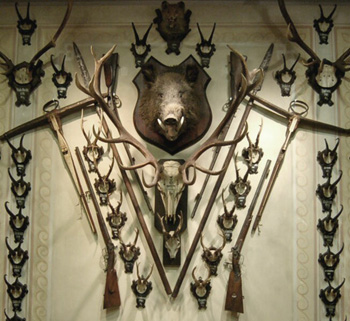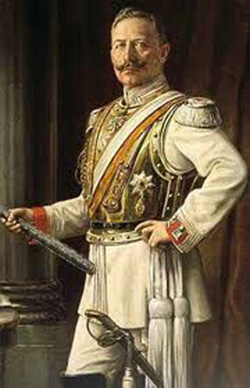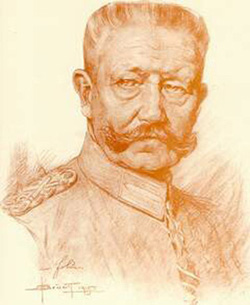Organic Society
 |
 |
 |
 |
 |
 |
 |
Personification of Principles - III
The Role of Imitation
in Pursuing Legitimate Pleasure
Regarding the question of imitation (here and here), we see that in the Middle Ages imitation was considered so just and legitimate that it became institutionalized. The social class destined to serve as the model for other classes to imitate was the nobility, and this was one of its highest responsibilities.
Let us look, for instance, at the question of how to enjoy a legitimate entertainment.
The Catholic Church gives us some general notions regarding recreation. On the one hand, distraction must be in accordance with the law of God; it should not transgress Morals; on the contrary, it should develop virtue as much as possible. On the other hand, recreation must offer true enjoyment. Normally speaking, a diversion should not demand a lot of effort, or it ends by not giving enjoyment.
How does a person learn how to engage in recreation with these principles? It is difficult.
If one of you were to tell me, “I find life very boring and do not know how to divert myself.” I would respond, “Find an honest diversion, and your problem will diminish.”
Then, he might ask: “But what would this be? And what is an honest diversion?” I could try to help him by saying, “Well, a diversion is the opposite of anxiety. If you want to divert yourself, find what relaxes you and engage in that.”
We see that this does not go very far in teaching someone how to pursue an honest recreation. Actually, this is not something that can be taught by principles alone.

 Instead, if we were to observe the way Catholic nobility engaged in recreation, we would find it much easier to understand. So, for example, nobles love to hunt. Hunting the fox, the deer and wild boar started as a necessity to free the nobles’ lands of these animals that were destroying their crops and poultry. After clearing their lands, however, the nobles realized that hunting those animals provided a virile pleasure.
Instead, if we were to observe the way Catholic nobility engaged in recreation, we would find it much easier to understand. So, for example, nobles love to hunt. Hunting the fox, the deer and wild boar started as a necessity to free the nobles’ lands of these animals that were destroying their crops and poultry. After clearing their lands, however, the nobles realized that hunting those animals provided a virile pleasure.
So, they continued to hunt, no longer from necessity, but rather exclusively for entertainment. It was a quite appropriate diversion, which in times of peace maintained their agility and dexterity on horseback, as well as their precision in shooting. These exercises were very useful in keeping them prepared for war. This is how the mounted chase and hunt became one of the characteristic forms of recreations for the nobility. The nobles elaborated a whole ceremonial that went with hunting; a way to gather together before the hunt, refresh themselves during it, and celebrate their achievements afterwards. This became a typical form of leisure or recreation for nobles.
More modest classes, seeing the enjoyment of the nobles, imitated the recreation in proportion to their means. So, instead of chasing the fox and the deer on horses, they hunted on foot. Instead of having fifty dogs, they had one or two well trained ones. Instead of having pavillons de chasse in the middle of the woods to refresh themselves during the hunt, they carried substantial sandwiches and strong drinks that served to reinvigorate them in the cold and humidity of the woods.
Instead of the expensive procedure of mounting the deer and pheasants to hang from the walls of their castles, they simply returned home with their catches and gave them to their wives to prepare them to be eaten. In parallel, this became also the source of delicious new recipes, the best of which were passed on from generation to generation and has allowed us all to benefit from them.
Another byproduct of this imitation: The young boys who were not old enough to hunt with their fathers, seeing their enjoyment, wanted toys similar to rifles and shotguns to look like hunters. Thus, an equipage of toys and play gear was born to amuse and entertain children, giving them, in turn, great pleasure.
We see, therefore, that without the need of too many doctrinal explanations, many people in society - both nobles and plebeians of all ages - were able to divert themselves honestly, following the good example of the nobles.
Imitation gave countless persons from various social classes a pleasure that they would not have had if they had not imitated the nobles.
But, this legitimate role of imitation works efficiently, not only for those who are not nobles, but for those who admire their lives as well. It operates in a similar way among the nobility.
How does imitation take place among the nobility?
God, who made some men more intelligent than others, also made some men more emblematic than others: that is, they better represent a particular principle. It happens at times that very intelligent persons are not the most emblematic. I define an emblematic person not as one who is always trying to “steal the show” and be the center of attention, but the person who has the gift of incarnating principles and giving them life.

 Let us take two examples of Germans in the First World War: General Hindenburg and Kaiser Wilhelm II. Hindenburg was indisputably a very intelligent man and a great general; however, he had a very vulgar face lacking representation. The Kaiser, on the contrary, was not a great general, but he knew perfectly how to personify German militarism. He represented militarism to such a degree that we can say he incarnated German militarism. He irradiated militarism and spread it wherever he went.
Let us take two examples of Germans in the First World War: General Hindenburg and Kaiser Wilhelm II. Hindenburg was indisputably a very intelligent man and a great general; however, he had a very vulgar face lacking representation. The Kaiser, on the contrary, was not a great general, but he knew perfectly how to personify German militarism. He represented militarism to such a degree that we can say he incarnated German militarism. He irradiated militarism and spread it wherever he went.
God created some persons with this capacity to personify and irradiate qualities and ideas. I am persuaded that tradition – a formation that starts centuries before the person is born – ends by making persons like this, highly representative persons in whom ideas become transparent.
At times, one of these persons can unknowingly represent principles. In one of his books, Proust writes about a friend, the Count of Gramont, who was a young man serving with him in the French army and had socialist ideas. The Count was in the barracks eating and chatting with Proust, cutting a steak with superior perfection. As he elegantly raised a piece to his mouth, he commented: “Then, my dear friend, you do not believe that we are all equal…” That is, at the very moment he was expounding a socialist idea, he was representing exactly the opposite.
I have observed that a long tradition gives this capacity to represent principles, even when the person thinks the opposite of what he represents.
Since God made some men more emblematic than others, among the elites some are more capable of representing principles with a greater luminosity, of transforming them into styles of living. These men acquire a great irradiation and influence and should be imitated by their own peers.
Therefore, if someone wants to know how these principles apply to life, he should imitate those persons. Anyone who refuses to imitate them is as dull as a person who sustains: “I hate this light because it does not come from me.”
It often happens that I need the light of others to guide me in many things.
Continued

Let us look, for instance, at the question of how to enjoy a legitimate entertainment.
The Catholic Church gives us some general notions regarding recreation. On the one hand, distraction must be in accordance with the law of God; it should not transgress Morals; on the contrary, it should develop virtue as much as possible. On the other hand, recreation must offer true enjoyment. Normally speaking, a diversion should not demand a lot of effort, or it ends by not giving enjoyment.
How does a person learn how to engage in recreation with these principles? It is difficult.
If one of you were to tell me, “I find life very boring and do not know how to divert myself.” I would respond, “Find an honest diversion, and your problem will diminish.”
Then, he might ask: “But what would this be? And what is an honest diversion?” I could try to help him by saying, “Well, a diversion is the opposite of anxiety. If you want to divert yourself, find what relaxes you and engage in that.”
We see that this does not go very far in teaching someone how to pursue an honest recreation. Actually, this is not something that can be taught by principles alone.

Above, fox hunting in France; below, trophies at the Kaiser Ville, in Bad Ischl, Austria

So, they continued to hunt, no longer from necessity, but rather exclusively for entertainment. It was a quite appropriate diversion, which in times of peace maintained their agility and dexterity on horseback, as well as their precision in shooting. These exercises were very useful in keeping them prepared for war. This is how the mounted chase and hunt became one of the characteristic forms of recreations for the nobility. The nobles elaborated a whole ceremonial that went with hunting; a way to gather together before the hunt, refresh themselves during it, and celebrate their achievements afterwards. This became a typical form of leisure or recreation for nobles.
More modest classes, seeing the enjoyment of the nobles, imitated the recreation in proportion to their means. So, instead of chasing the fox and the deer on horses, they hunted on foot. Instead of having fifty dogs, they had one or two well trained ones. Instead of having pavillons de chasse in the middle of the woods to refresh themselves during the hunt, they carried substantial sandwiches and strong drinks that served to reinvigorate them in the cold and humidity of the woods.
Instead of the expensive procedure of mounting the deer and pheasants to hang from the walls of their castles, they simply returned home with their catches and gave them to their wives to prepare them to be eaten. In parallel, this became also the source of delicious new recipes, the best of which were passed on from generation to generation and has allowed us all to benefit from them.
Another byproduct of this imitation: The young boys who were not old enough to hunt with their fathers, seeing their enjoyment, wanted toys similar to rifles and shotguns to look like hunters. Thus, an equipage of toys and play gear was born to amuse and entertain children, giving them, in turn, great pleasure.
We see, therefore, that without the need of too many doctrinal explanations, many people in society - both nobles and plebeians of all ages - were able to divert themselves honestly, following the good example of the nobles.
Imitation gave countless persons from various social classes a pleasure that they would not have had if they had not imitated the nobles.
But, this legitimate role of imitation works efficiently, not only for those who are not nobles, but for those who admire their lives as well. It operates in a similar way among the nobility.
How does imitation take place among the nobility?
God, who made some men more intelligent than others, also made some men more emblematic than others: that is, they better represent a particular principle. It happens at times that very intelligent persons are not the most emblematic. I define an emblematic person not as one who is always trying to “steal the show” and be the center of attention, but the person who has the gift of incarnating principles and giving them life.

Above, Kaiser Wilhelm II; below, General Paul von Hindenburg

God created some persons with this capacity to personify and irradiate qualities and ideas. I am persuaded that tradition – a formation that starts centuries before the person is born – ends by making persons like this, highly representative persons in whom ideas become transparent.
At times, one of these persons can unknowingly represent principles. In one of his books, Proust writes about a friend, the Count of Gramont, who was a young man serving with him in the French army and had socialist ideas. The Count was in the barracks eating and chatting with Proust, cutting a steak with superior perfection. As he elegantly raised a piece to his mouth, he commented: “Then, my dear friend, you do not believe that we are all equal…” That is, at the very moment he was expounding a socialist idea, he was representing exactly the opposite.
I have observed that a long tradition gives this capacity to represent principles, even when the person thinks the opposite of what he represents.
Since God made some men more emblematic than others, among the elites some are more capable of representing principles with a greater luminosity, of transforming them into styles of living. These men acquire a great irradiation and influence and should be imitated by their own peers.
Therefore, if someone wants to know how these principles apply to life, he should imitate those persons. Anyone who refuses to imitate them is as dull as a person who sustains: “I hate this light because it does not come from me.”
It often happens that I need the light of others to guide me in many things.
Continued

Posted May 9, 2014
Organic Society was a theme dear to the late Prof. Plinio Corrêa de Oliveira. He addressed this topic on countless occasions during his life - at times in lectures for the formation of his disciples, at times in meetings with friends who gathered to study the social aspects and history of Christendom, at times just in passing.
Prof. Plinio
Atila S. Guimarães selected excerpts of these lectures and conversations from the transcripts of tapes and his own personal notes. He translated and adapted them into articles for the TIA website. In these texts fidelity to the original ideas and words is kept as much as possible.
______________________
______________________












